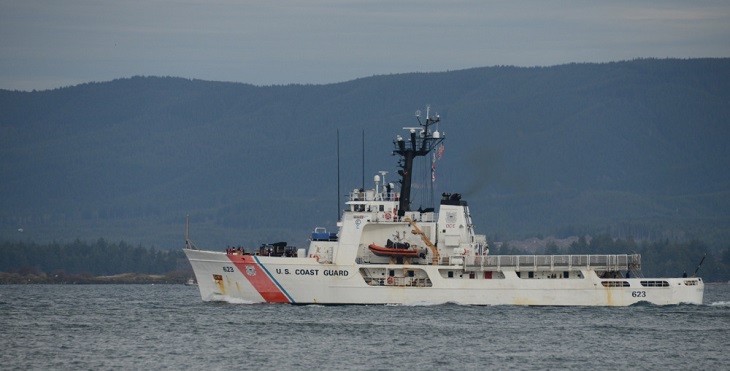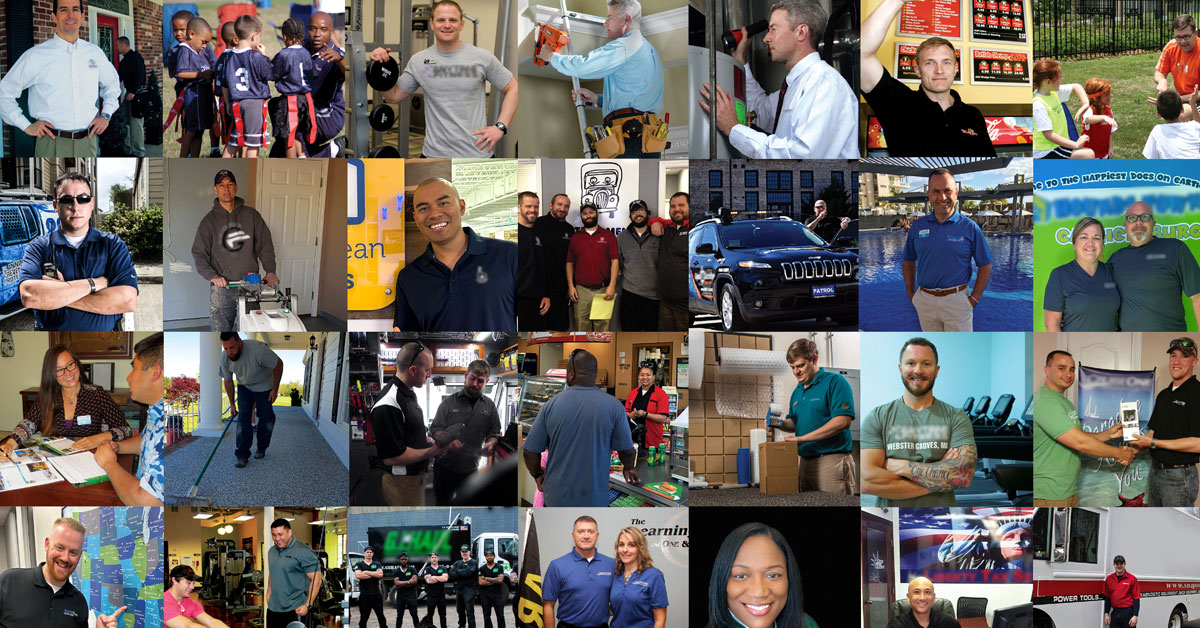On Nov. 11 each year, Americans honor Veterans for their willingness to serve and sacrifice for the common good. Being a Veteran myself, I know that there are many facets to how military service impacts an individual. Some of these facets are so nuanced that they might seem insignificant. To people who have never had an immediate family member or close friend in the military, these impacts could be invisible.
Nuanced and seemingly insignificant as they are, these impacts are anything but. They add up over years of service and they can change the entire course of the service member’s life.
The way to learn about these not-so-visible impacts of military service is by listening to Veterans’ stories. In this vein, I’m offering my story. It is also my wife’s story and, together, it is the story of a dual-military couple balancing their commitment to the Coast Guard with their commitment to each other in the months before and after our nation was turned upside down on Sept. 11, 2001.
Sara and I graduated from the U.S. Coast Guard Academy in the spring of 2000. We had been dating since our third-class (sophomore) year, and under the Academy’s “buddy program,” we were able to be stationed in the same location. I was assigned to Coast Guard Cutter Alert, and Sara was assigned to Coast Guard Cutter Steadfast, both based in Astoria, Oregon.
The first eighteen months as a junior officer are busy. You are learning new jobs, attending vocational schools, and working toward watch qualifications in order to become a productive member of the crew. I was working toward qualifications for engineer of the watch and deck watch officer. I also had a number of collaterals such as damage control assistant, morale officer, and fueling officer. Sara was a dedicated deck watch officer and served as a boarding team member, law enforcement officer, and morale officer.
Patrols are the lifeblood of a cutter and where it performs the Coast Guard’s mission. With our ships being the only 210-foot cutters in Astoria, Alert and Steadfast worked in port and starboard rotations. This meant one ship would be in port while the other was running fishery patrols and drug interdiction operations in the waters between British Columbia and Central America. Each patrol lasted six to eight weeks.
By May of 2001, we had settled into our shipboard routines and started to plan for our next assignments. Summer began with Sara being on patrol. I’m a foodie and I had promised her that when she got back, we would drive my Jeep to a remote section of the beach for an elaborate picnic. It was also the perfect cover-up for a marriage proposal.
The picnic didn’t go quite as planned. I was so focused on not screwing up the proposal that I forgot entirely about the food. Also, Oregon beaches are not known for being timid. Not long after we arrived, the temperature dropped and then the wind picked up and started blasting us with sand.

My ship departed to patrol off the coast of Mexico a few weeks later. On the morning of Sept. 11, we had a brief refueling stop in Mexico. I was on duty on the ship as engineering officer of the watch when we received a priority Z message, which requires immediate action. The message provided few details of the attacks and ordered us to get underway immediately.
As the ship’s crew struggled to make sense of what was happening and why, we set armed guards on the gangway and I rushed to light off the ship’s engines. Being at sea in a foreign country, our access to news was limited and inaccurate. None of our crew would have an accurate picture of what had happened at the Pentagon, World Trade Center, and Shanksville until our return to Astoria nine days later.
In the meantime, I had no way of communicating with Sara other than a few abbreviated emails sent and received through Alert’s spotty internet connection. While we focused on our immediate work, everything else was uncertain. In the span of hours, we had gone from serving in the military during a time of peace to serving in the military during a time of conflict. We didn’t know how long the 9/11 surge efforts would last and how that would impact our ships’ schedules.
While the ships’ operations surged, the bureaucratic assignment process churned on, inching us closer to a deadline to submit “dream sheets” to detail our requests for our next assignments. As the deadline loomed closer, the assignment officers made it clear that without a marriage certificate, a request from Sara and me to be co-located would not be considered.
We thought we’d have plenty of time to elope once I returned to Astoria, but then my ship’s patrol was extended to support maritime security efforts and Sara’s deployment was moved sooner. We soon realized that we would only have 48 hours in port together once my ship arrived. To further complicate the logistics, my dad and his wife were flying in to Oregon for a previously scheduled visit. To have only them at our elopement wouldn’t be fair to Sara’s family, so we decided to keep our marriage a secret. The problem was, this left us a grand total of two hours to get married.

Coast Guard Commander Sara DiLuna poses with her children after she gave their Cub Scout pack a tour of USCGC Stratton.
While I was underway in the Pacific, Sara coordinated the details from Astoria. My ship arrived mid-morning on Sept, 20. I disembarked the moment the brow was in place at the Coast Guard pier and Sara picked me up. We raced home where I changed into a pair of khaki pants and a shirt that she had ironed for me. She put on a blue-flowered sundress and grabbed an old fleece sweatshirt on her way out the door in case the weather changed.
We hurried to the Astoria pier to meet the officiant and our two witnesses. And there, on that overcast day near the mouth of the Columbia River, we exchanged our vows. The ceremony lasted all of ten minutes. We celebrated with a brief lunch at Cannery Cafe on the pier with our witnesses, snapped a quick picture, removed the rings we had exchanged just thirty minutes before, and then got in the car to make the hundred-mile drive to the Portland Airport to pick up my dad.
Those hundred miles were hardly enough time for the events of the previous two weeks to sink in, but it was all we had before turning to the business of helping America regroup and prepare for a new era in defense. A day and a half later, Sara was underway to the busy ports of San Francisco and Seattle to ensure commerce continued flowing by providing security escort services for merchant ships.
While many newlywed couples struggle in their first year of marriage, ours was actually quite blissful . . . we saw each other only three times, and one of those times was through a set of “big eye” binoculars as our ships passed each other in the waters of Northern California.
In our Christmas cards that year, Sara and I revealed to our family and friends that we had gotten married. We reaffirmed our vows in a traditional ceremony one year and one day later in Sara’s hometown of Phoenix, Arizona.
After seven years in the Coast Guard, I resigned my commission to pursue my entrepreneurial passions and eventually start a service design company for the federal government. Sara continues to serve and just celebrated her eighteenth year in the Coast Guard. We have two great little kids, ages seven and nine, and our life as an active duty military family is typical of any family with two working parents – extremely chaotic.
As September approaches each year, I find myself reflecting on the tragedies 9/11. In recent years, I’ve also struggled to find a way to talk with my kids about what happened. At this young age, there are only so many details I can give, but even when they are old enough to know everything, I wonder if they’ll ever be able to truly comprehend the magnitude of the attacks.
What I talk about instead is how afterward there was an undeniable force that united all Americans. Heroes emerged from the stories of horrific tragedy, and this wasn’t just individuals, but groups of strangers who shared a unity of purpose to rescue, recover, and restore our way of life.
Our family’s history is intrinsically tied to the tragedies of 9/11 and that effort to recover and restore. Though Sara and I were simply service members fulfilling our duty to protect and defend the United States, the story of our marriage in the wake of the attacks illustrates one of the less-visible facets of what it means to serve.
For us, as with any Veteran or active duty service member, by agreeing to serve, we give up control of certain aspects of our lives. Even above the biggest milestones in life, the mission comes first. The people we love often come second. That is our sacrifice and it is a sacrifice that our family members make, too.
About the author: John DiLuna is a Coast Guard Veteran and the founder and CEO of Technical Assent, a service design company that helps federal government agencies improve performance and customer experience. He is also a Coast Guard spouse and father of two young children.
Topics in this story
More Stories
Veterans are nearly three times more likely to own a franchise compared to non-Veterans.
The Social Security Administration is hoping to make applying for Supplemental Security Income (SSI) a whole lot easier, announcing it will start offering online, streamlined applications for some applicants.
Yusuf Henriques, an Army Veteran and former combat medic, is the founder and CEO of IndyGeneUS AI, a genomics company on a mission to improve health equity by increasing representation of women and racial minorities in clinical trials.






